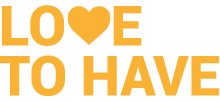An Understanding of Aspiration and Choking
Understanding of Aspiration and Choking Course Overview:
The "An Understanding of Aspiration and Choking" course is designed to equip participants with essential knowledge and skills related to recognising, responding to, and managing incidents of aspiration and choking. This course is suitable for healthcare professionals, caregivers, parents, educators, and anyone interested in learning how to effectively respond to situations involving aspiration and choking.
Understanding of Aspiration and Choking Course Duration:
- 1/2 day (3 hours)
Understanding of Aspiration and Choking Course Content:
By the end of the course, participants will be able to:
- Define aspiration and choking.
- Recognise and respond to aspiration and choking.
- Outline working in line with Dysphagia Risk Management plans.
- Discuss strategies to reduce aspiration and choking risk.
Understanding of Aspiration and Choking Course Objectives:
- Recognise the signs and symptoms of aspiration and choking: Understand the clinical manifestations of aspiration, including coughing, wheezing, and dyspnoea, as well as the signs of choking and airway obstruction.
- Learn about risk factors and causes: Familiarise yourself with the factors contributing to aspiration and choking, including anatomical considerations, impaired swallowing, and ingestion of foreign objects.
- Acquire skills in rapid assessment: Develop hands-on skills in quickly assessing the severity of aspiration and choking incidents, including determining the patient's ability to breathe and cough.
- Understand airway management techniques: Learn techniques for clearing airway obstructions caused by both food and foreign objects, including abdominal thrusts (Heimlich manoeuvre) and back blows.
- Address aspiration prevention and management: Gain knowledge about strategies to prevent aspiration, including appropriate positioning during meals and maintaining proper swallowing techniques.
- Recognise the importance of collaboration: Understand the significance of interdisciplinary collaboration in managing aspiration and choking incidents, including communication with emergency medical personnel.
- Develop communication skills: Learn effective communication techniques to educate patients, caregivers, and family members about aspiration and choking risks, preventive measures, and emergency responses.
- Ethical considerations and patient-centred care: Explore ethical issues related to providing emergency care, ensuring patient autonomy, and delivering interventions with empathy and respect.
Assessment and Certification:
Participants will undergo practical skills assessments, written assessments, and scenario-based evaluations to evaluate their understanding and competence in managing aspiration and choking incidents. Successful completion will lead to a certification of achievement in "An Understanding of Aspiration and Choking Management."


